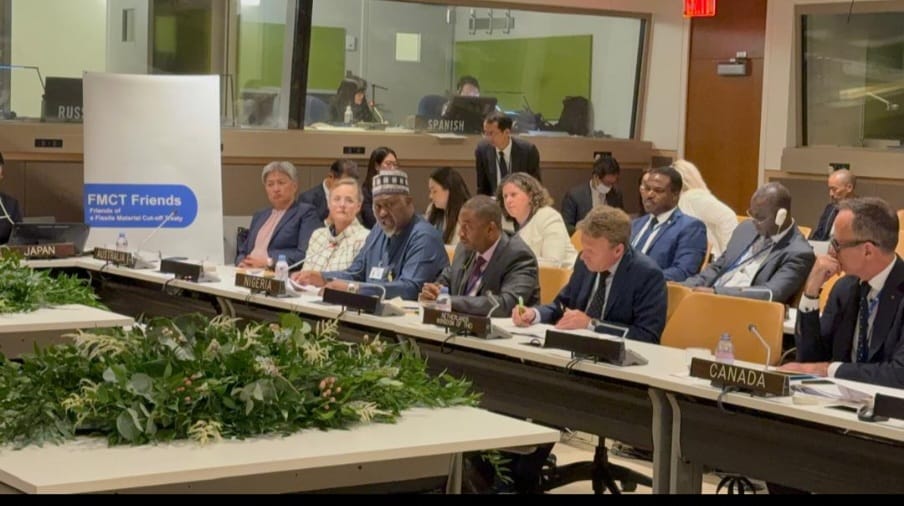Nigeria has renewed its call for urgent global action to ban the production of fissile materials, reaffirming its commitment to nuclear disarmament and non-proliferation.
The Minister of Defence, Mohammed Abubakar Badaru, made the call at the first Ministerial Meeting of the “Friends of an FMCT” convened by Japan on the sidelines of the 80th United Nations General Assembly in New York. He described the proposed Fissile Material Cut-off Treaty (FMCT) as both a legal necessity and a moral duty.
“Closing the fissile material gap is the most realistic way to stop an uncontrolled arms race,” Badaru said. “The FMCT will rebuild trust, strengthen the Non-Proliferation Treaty and give momentum back to disarmament.”
The Minister urged the international community to turn rhetoric into concrete action, especially as this year marks the 80th anniversary of the atomic bombings of Hiroshima and Nagasaki. “The memory of Hiroshima and Nagasaki compels us to act with courage. The survival of humanity demands it,” he added.
Badaru also highlighted Africa’s leadership in nuclear restraint through the Treaty of Pelindaba, which established a nuclear-weapon-free zone across the continent. “Africa has shown that restraint is possible. Nigeria now calls for that same spirit to guide global action,” he said.
To accelerate progress toward an FMCT, he outlined three immediate measures: a global moratorium on the production of fissile material for nuclear weapons, the dismantling or conversion of existing facilities for peaceful uses, and the adoption of interim steps to build political momentum toward a universal, verifiable and non-discriminatory treaty.
The Defence Minister linked Nigeria’s position to President Bola Ahmed Tinubu’s Renewed Hope Agenda, stressing that disarmament, security and development are interconnected. “Disarmament is not an abstract debate. Every step we take to reduce nuclear risks frees resources for health, education and economic growth,” he said.
According to a statement issued by Mati Ali, PA Media and Publicity to the Minister, Nigeria’s position marks a shift from participation to leadership in global disarmament efforts, aiming to align regional achievements with international policy for a safer and more secure world.















